8 (Free!) Things Your Kid Needs on the First Day of School
Despite what kids say—usually with pleading, desperate eyes—an iPad or a pair of $200 jeans isn't really going to help them on the most anxiety-inducing day of the year. Here's what will.
By Leigh Newman
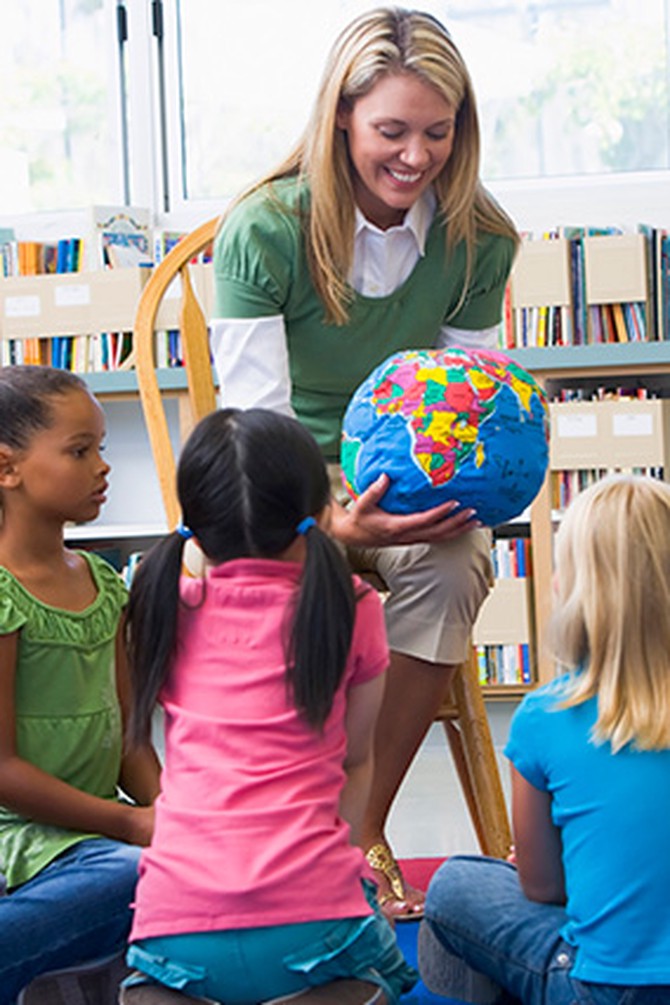
Photo: Thinkstock
The Name of the Teacher
The most obvious things are the ones we most always overlook. The name of the insufficiently paid, heroic individual who is going to make sure your kid can subtract or prove geometric theorems has been sitting on the kitchen counter all summer, twinkling at the bottom of a form. A parent can glance at it once and be ready. For kids, though, names are so much harder to remember. Quizzing your child on his teacher 's name until he nails it tells him, "Hey! This person is not just a hand puppet with chalk. She's a human being, the one you will respect and may, in very special cases, also adore." After having been greeted by her name—no mispronounced syllables—the teacher is, of course, all the more likely to give some of that respect and adoration back to your child.

Photo: Thinkstock
A Mnemonic Device
Whizzing the dial of a locker around from number to number and hearing the cool metallic click as it opens is one of the great joys of going school. Forgetting your combination, fumbling around with the lock until you're late, then frantically running to class without the right book, which is still inside your locker? Hmm...teach your kid how to use a letter code to remember numbers. My favorite is Bacon Rumps.
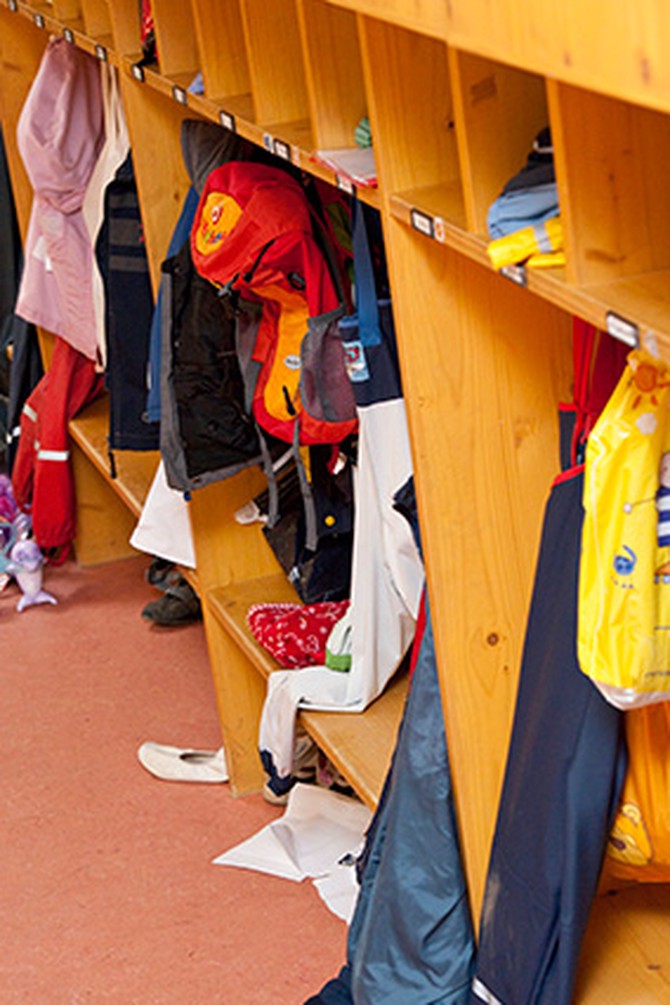
Photo: Thinkstock
An Extra Change of Clothes, Even for Teenagers
Kids under 8 always need this, just in case. But long past the age of nervous accidents, your child needs a spare outfit. For example, should your eighth-grade daughter walk into school and realize she is the only one who wore a halter top or the only one who wore purple shorts, and everything on her is wrong, all wrong, because nobody is going to sit with her at lunch or ever ask her to the dance, she can calmly go in the bathroom and change clothes and act as if that horrible blunder had never happened.
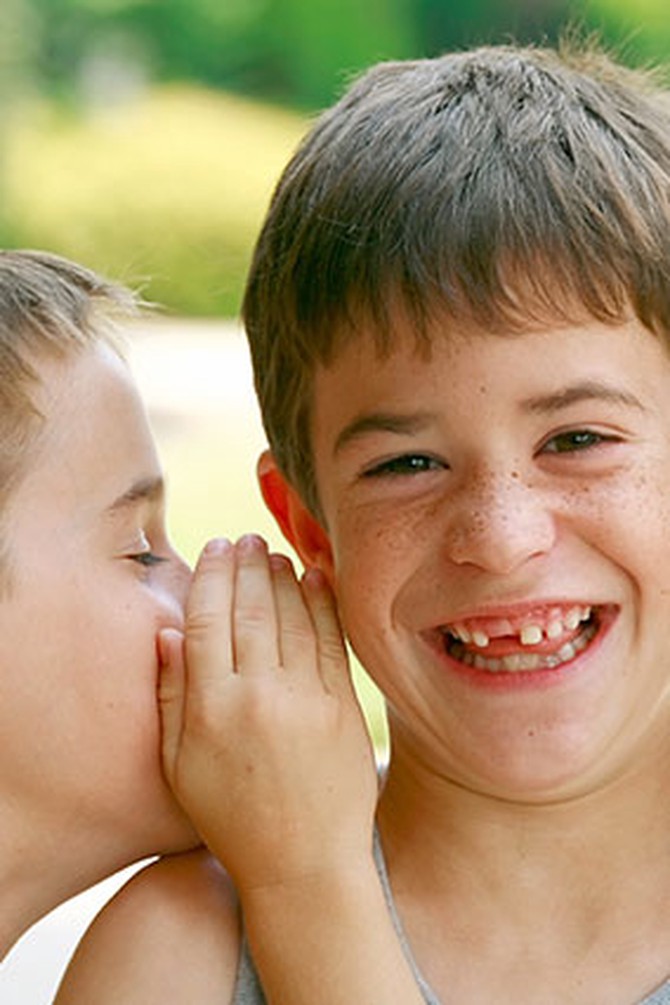
Photo: Thinkstock
A Joke
Nothing makes a group of sweaty, socially inexperienced kids like you better than a joke. Make sure the one you send your child to school with is age-appropriate. A kindergartener needs a really obvious knock-knock or a grosser-than-gross, not a "horse went into a bar and made a rueful comment" with political implications and a dash of innuendo.
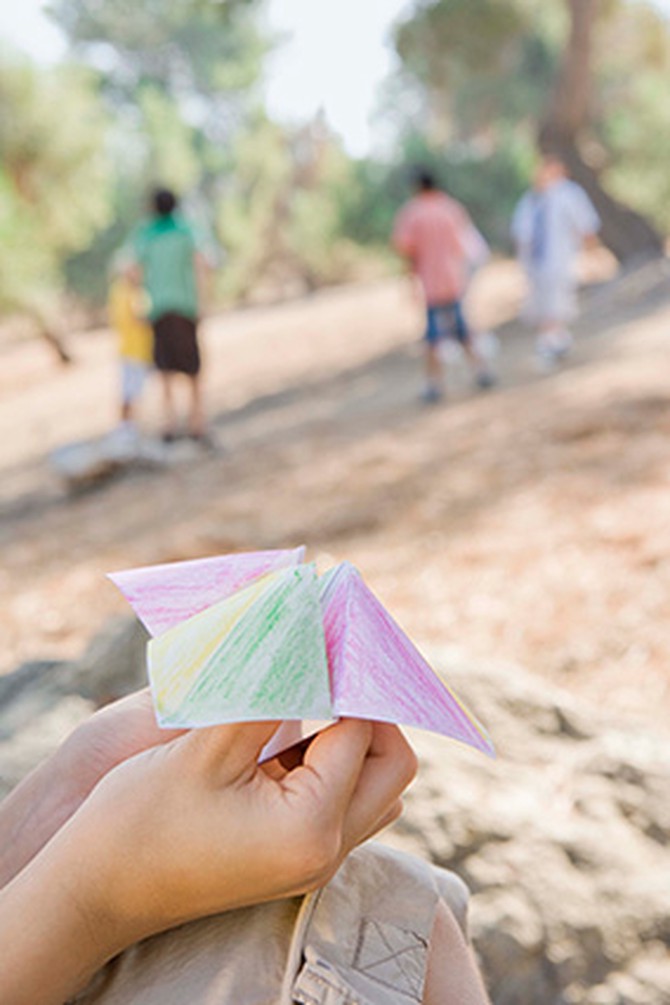
Photo: Thinkstock
A One-Kid Game
Recess! It's so perplexing for a kid, figuring out HOW to casually slip into the game of tag or join the group playing "pretend cat family." Things only get more stressful as they get older and they have to deal with other kids playing "smoke the clove behind the gym" or "beat up the Goth." At times, your child will not know what to do at all and may even stand desperately by a chain-link fence praying that nobody notices he has no friends to play with while being quite sure that everybody does notice. This is where giving your child a trick called "do something with your hands" comes in. Show him how to play jacks or make spinning top with a quarter. Give him a few sheets of origami paper and teach him how to fold it into?"the crane." If his schools doesn't allow to toys on the playground—even small, flashy ones that fit in pocket—show him a few basic yoga poses that he can do or teach him how to write a song in his head. The minute he looks busy, as if he doing something interesting and fun all by himself, is right when other kids come over to find out not just what's he's doing but if they can do it with him.
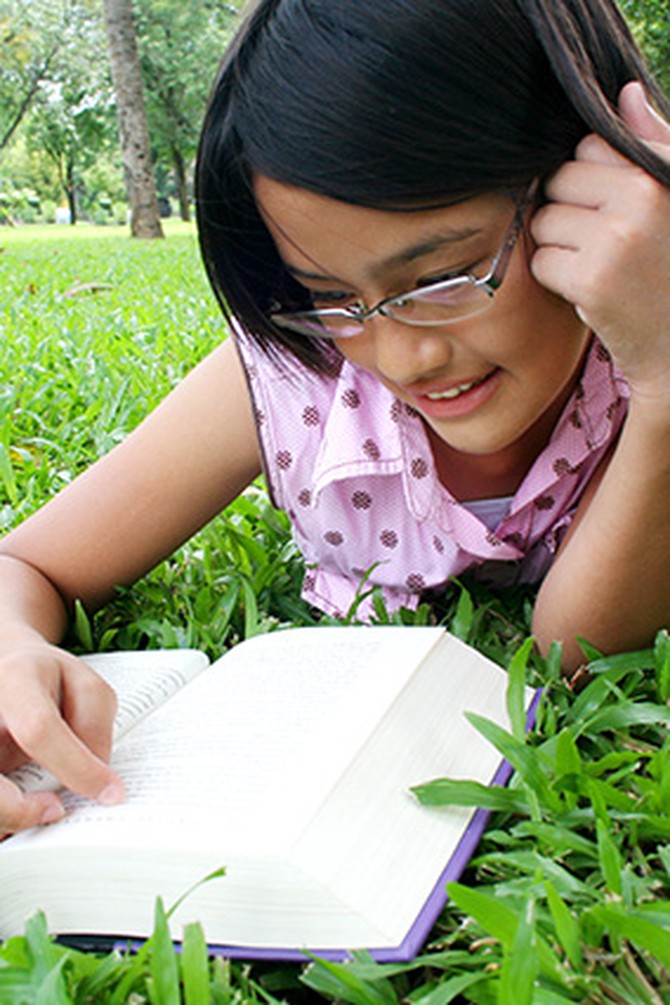
Photo: Thinkstock
A Completed Summer-Reading List
Who wants to badger their kid about finishing The Age of Innocence while you're on your one week off from work at the beach? Not me! You can tell yourself that not hassling your kids about summer reading will help them self-motivate and teach them independence, but that is a lie—a fat, honking lie. Most kids will self-motivate about sleeping in,
meeting the opposite gender, and getting over to the friend's house who has a Wii and a bulk carton of Pop-Tarts. On these fronts, let them sink or swim. But summer reading is not ever, ever going to occur to them as "something I should do to have a better life." Kids are just like us. They want to read trashy vampire novels during the summer. The only way you are going to get them to read The Old Man and the Sea is to bother the crap out of them daily. Thankfully, having done so, not only will they be better educated, they will also avoid the embarrassment of admitting to their teacher that they didn't do the reading this year, which I can tell you from personal experience, sets off all kind of bells about who needs extra special attention for the rest of the year.
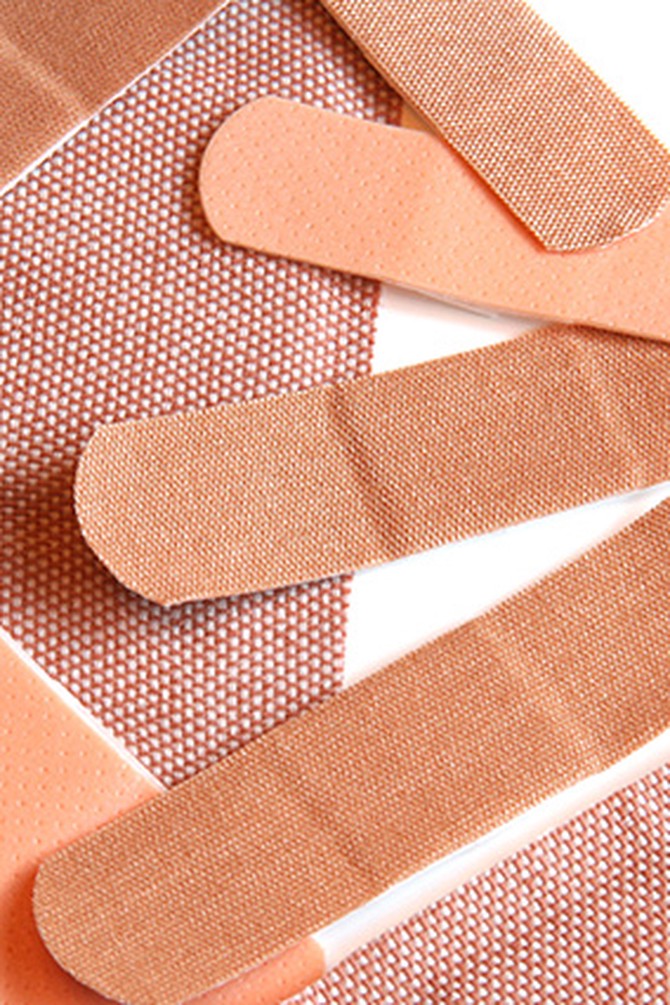
Photo: Thinkstock
An Emergency Ziploc
Tuck into your child's backpack a small sandwich bag filled with a few Band-Aids, $2 for bake sales or socially crucial snacks such as "the soda machine after gym" and a photo of her during some insanely happy day of her life (also known as: "the soccer goal" or "grandma came to town...with a giant bag of M&M's"). Finish it off with either a hand-drawn or official map of the school.
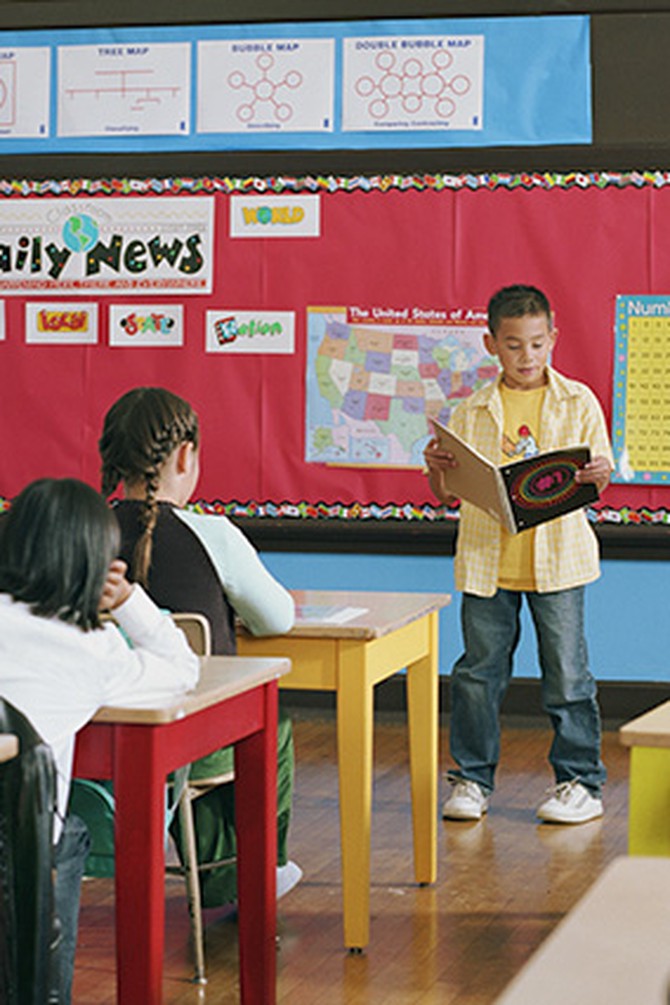
Photo: Thinkstock
A "My Sister Drove My Mom's Car into Our House" Story
In the world of obsessively attentive parenting and all-enrichment-all-the-time childhoods, the simple question "What did you do this summer?" can be challenging. Some of the kids in class are going to respond, "I went to Antarctica to study endangered penguins." Others are going to say, "I toured the continent, performing on my French horn." Describing months spent in your yard, squashing ants and reading comics is going to feel, well, lame. Two years ago, my son felt the same sense of horror and told everyone that he had gone to Alaska. He made really vivid drawings to support this total lie, which was how I found out about it, after the teacher asked me to come in and talk about feeding moose some lettuce. Even if your kid didn't dig a well in India this August, he did something unique that other people probably didn't. Like riding in the backseat as an older sibling learned to drive, which is a far better (read: funnier) an experience than going to a NASA space camp.
Next: 6 key people to know at your child's school
Next: 6 key people to know at your child's school
Published 08/27/2012

